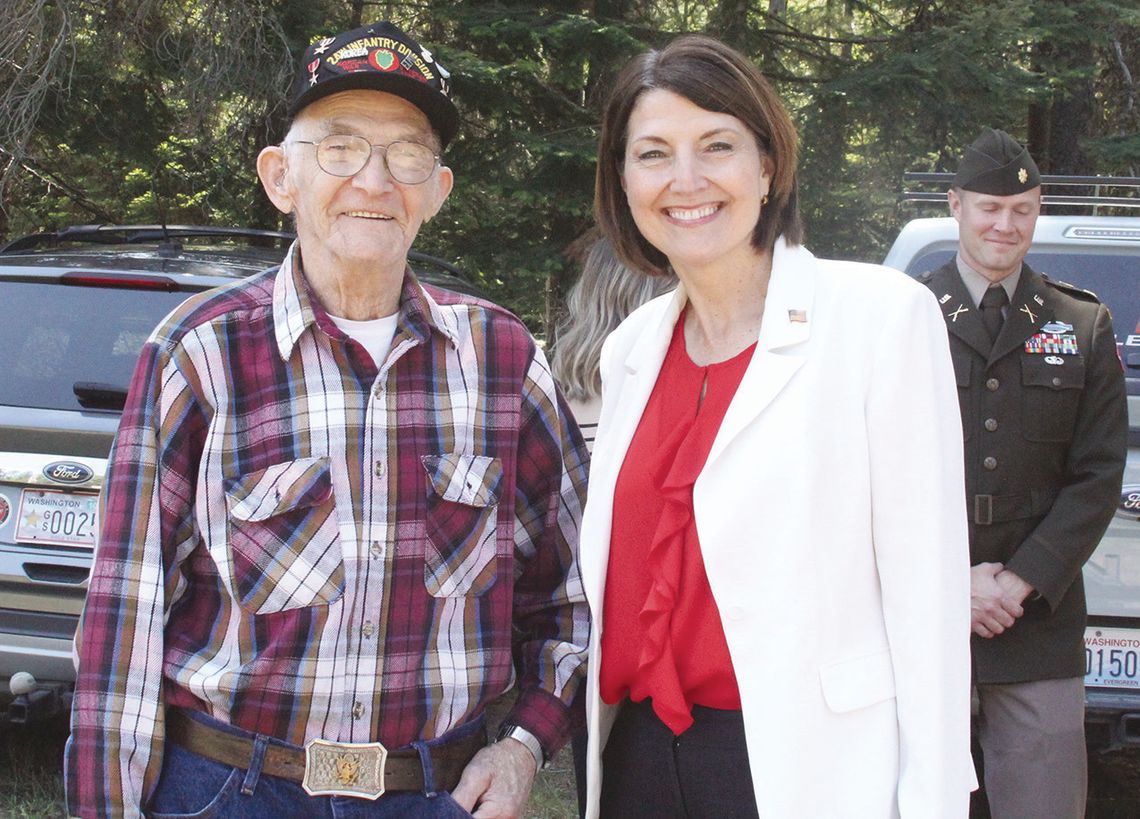USK – In 1950, the Korean War broke out with the invasion of North Korean forces into the south. One American soldier was among many who bore the brunt of it.
Donald Donner, 94, of Usk was 18 when he enlisted in the U.S. Army and was sent from Japan to Korea in a landing ship, tank (LST) to repel the attack.
Moving up South Korea as a radio operator, Donner and his men sustained casualties from North Korean armed forces with Donner killing a sniper and saving a field artillery unit. North Korean MiG jet fighters were shot down in the process.
Donner, who had been recently promoted to corporal, eventually became ensnared by over 10,000 North Korean soldiers as his small group came encircled behind enemy lines.
On July 20, 1950, only 12 days after being deployed, Cpl. Donner sustained multiple bullet wounds to his right leg from enemy fire before being captured with over 50 others. He also received a bayonet wound before he was forced to march north with over 700 other prisoners on what has been called the Tiger Death March.
“Two of our guys made it out. The rest were captured,” Donner said.
It was on this march that Donner sought help from other captives to remove multiple bullets from his leg which was successful. While a prisoner of war, Donald also suffered a broken jaw at the hands of his North Korean captors.
Donner said the Prisoner of War camp commandant never fed his prisoners forcing them to find whatever they could.
“I was six feet tall and weighed 206 pounds when captured. When released, I was five feet 10 inches and weighed 83 pounds,” he said. “It was extremely cold and got 70 below zero at times.”
After a bleak captivity near the Manchurian border, Donner was eventually released.
“I was in a prisoner of war camp for three years, one month and four days,” Donner said before being released under a ceasefire and prisoner of war exchange.
Donner wrote a book about his wartime experience ‘A death march and nightmares’. He said he gave his books away to his fellow POWs after the war.
“Many answers back some with checks in the envelopes,” he said.
Donner earned a silver star and four bronze stars for his service, but the Purple Heart eluded him. The Purple Heart is a military medal awarded to U.S. Service Members who are wounded, killed or die from wounds sustained while serving under the authority of the U.S.
He tried a couple of times since his discharge, but eventually gave up. That changed as his grandson, Jason Donner, an Army veteran himself of the Iraqi surge, took up the baton and finally secured him the coveted medal.
“This was something he was owed a long time ago. POWs were rushed out of the military.
They didn’t get the awards they deserved,” the younger Donner said.
After much paperwork, email and communication to the Congressional office of U.S. Rep. Cathy McMorris Roger (R-Spokane), by February 2024, his grandfather was issued the Purple Heart. On Thursday, a large family gathered to witness McMorris Rogers ceremoniously pinning the medal to Donner’s shirt at his home in Usk.
“It’s my greatest honor,” McMorris Rogers said. “Today 71 years later, it’s long overdue. What a special day to be able to honor him.”
McMorris Rogers said not only does the nation honor veterans like Donner, but South Korea is grateful too.
“Even though it’s called the forgotten war, South Koreans don’t forget,” she said.
“He is happy to be getting it, but it is bittersweet. It should have been given to him years ago,” Donald Donner’s daughter Liane Simmons of Arlington, Washington, said.
He had a hard time after he got out of prison camp, Simmons said.
“He had nightmares for a long time,” she said. “With what he went through, he loves life so much. He is an inspiration to everybody.”
Jason Donner said many veterans have gone without their awards they deserved years ago by getting lost in the bureaucratic shuffle.
“It’s easy for the government to say ‘no’ and force you to come back,” Donner said.
Donner recommends veterans reach out to their representatives or get to a veteran service program like Wounded Warrior project and see if they can help.
Donner’s grandson said certain generations like Donner’s generation are tougher in spirit than others.
“It’s these stories that make America what it is. It’s the reason I joined the military,” Donner said.
.png)







